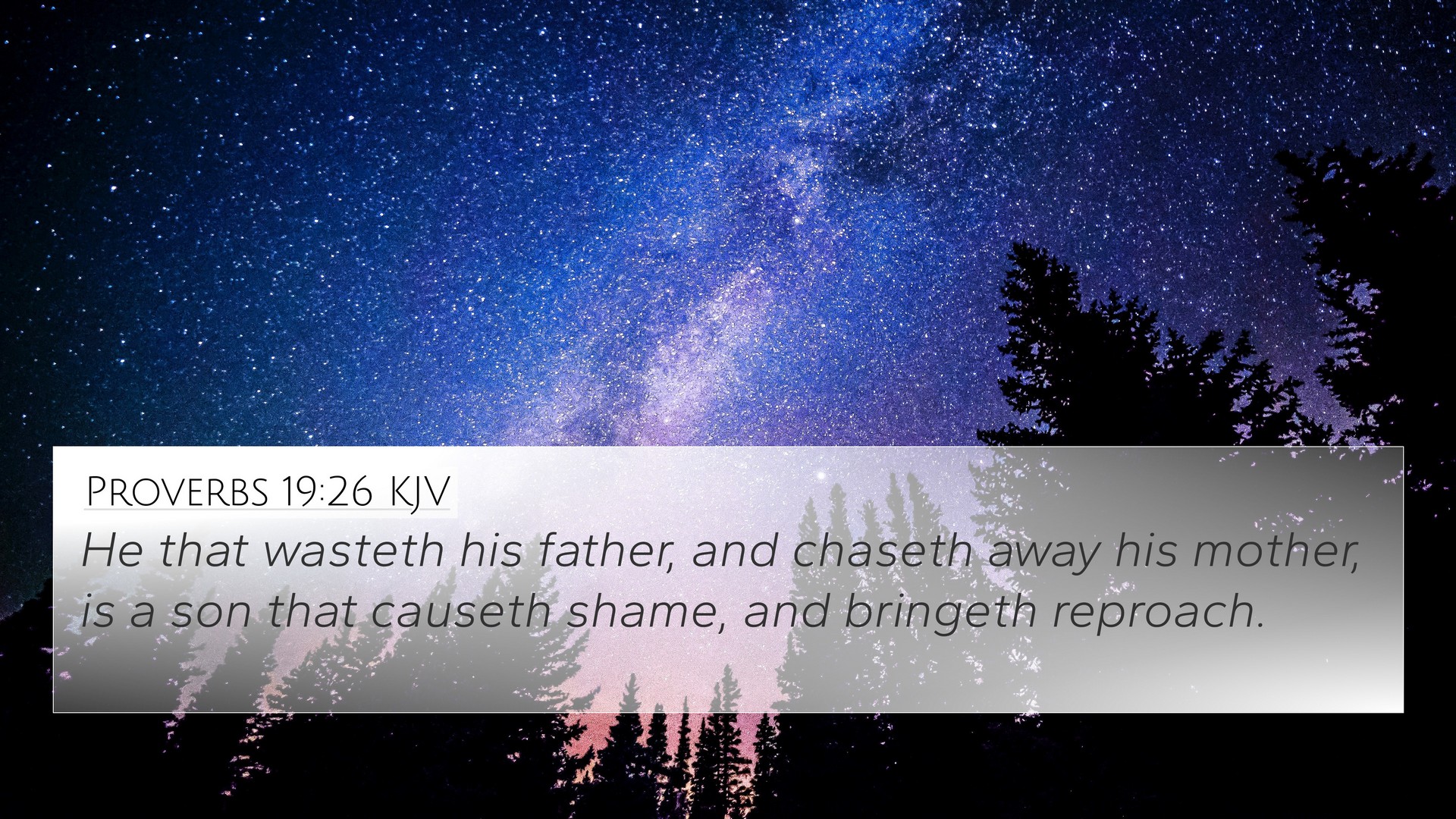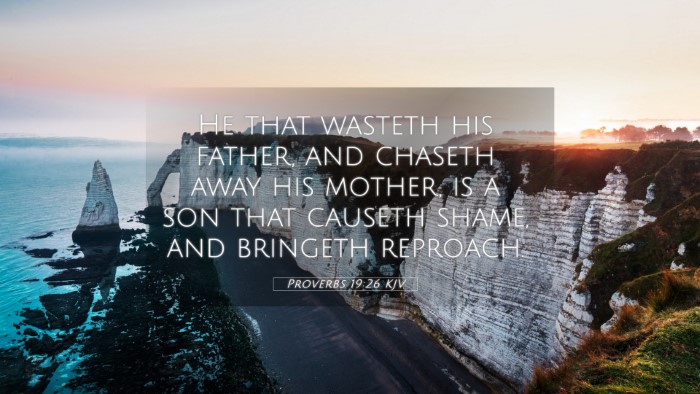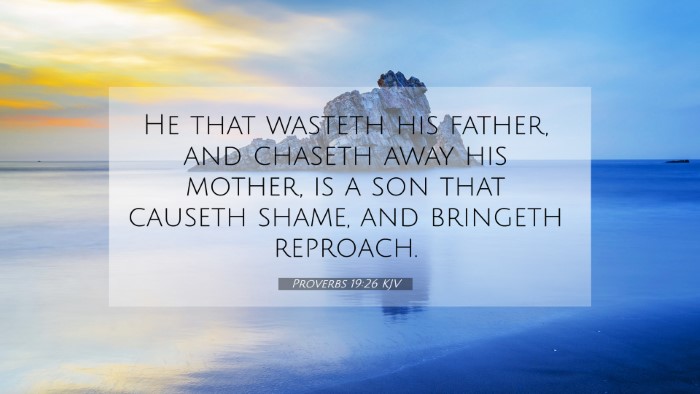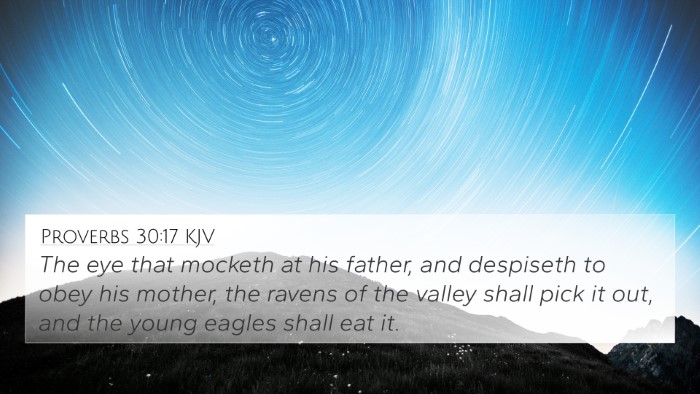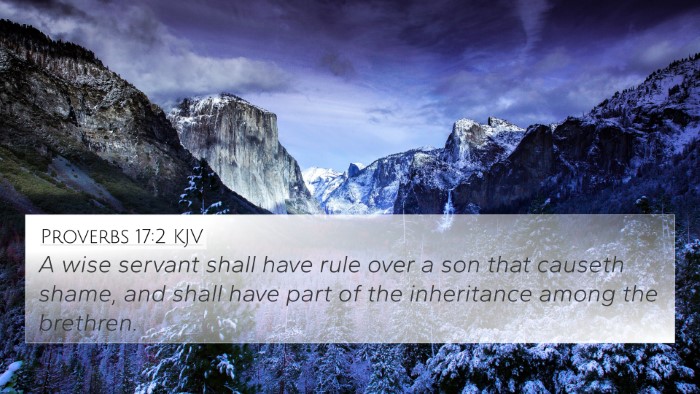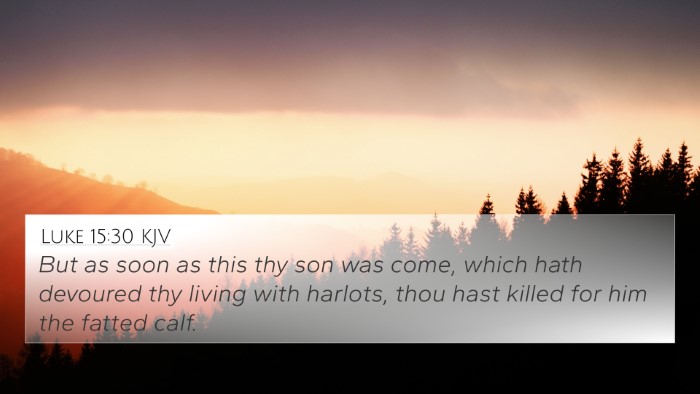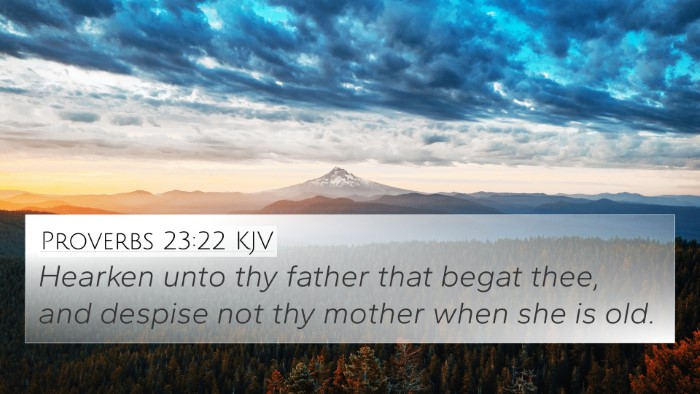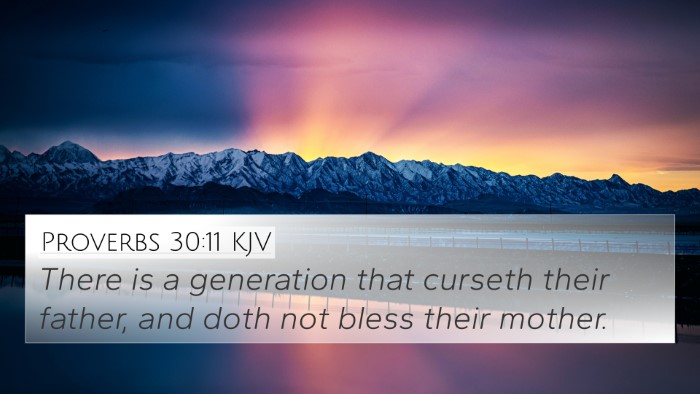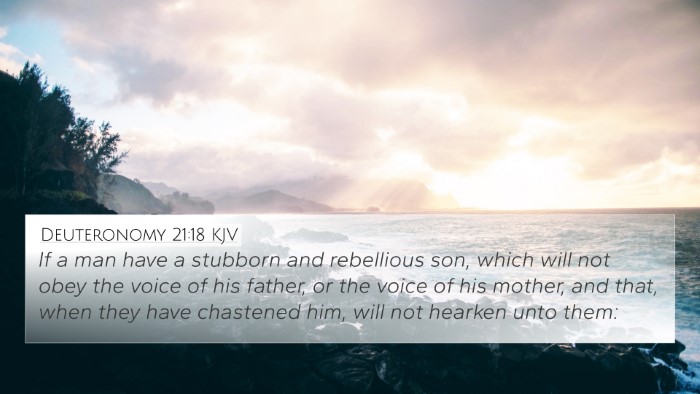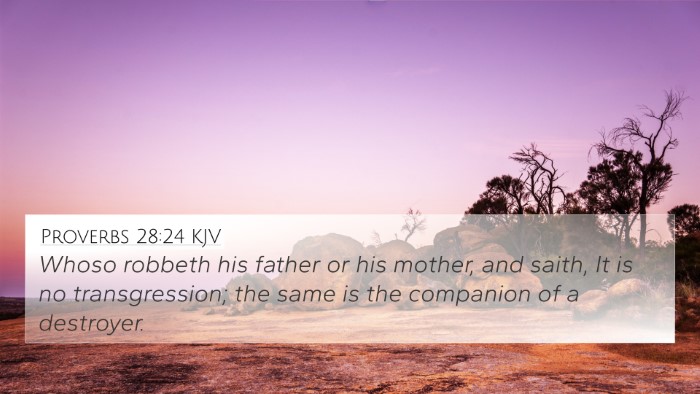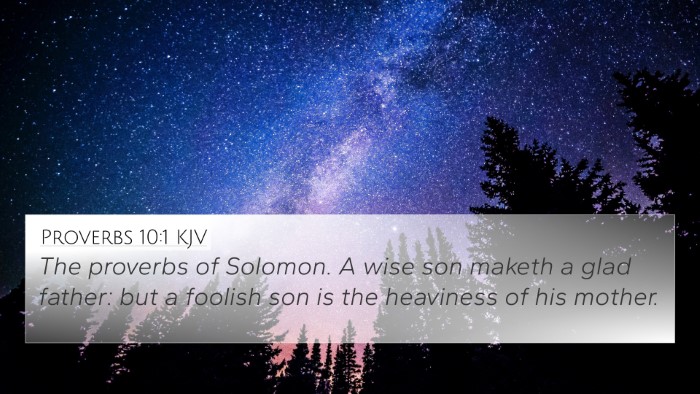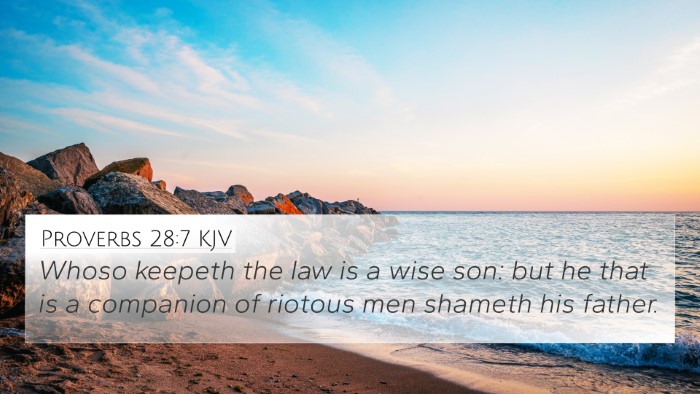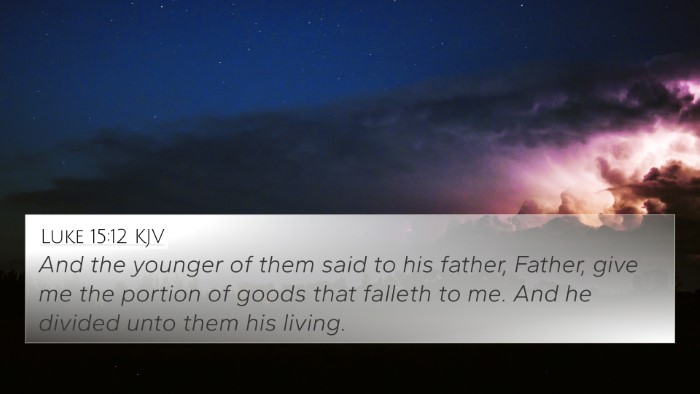Understanding Proverbs 19:26
Proverbs 19:26 states that, "He who mistreats his father and chases away his mother is a son who brings shame and reproach." This verse emphasizes the importance of honoring one’s parents and the consequences that arise from neglecting this fundamental duty.
Key Themes in Proverbs 19:26
This verse encapsulates several significant themes relevant to both personal behavior and societal values:
- Honor for Parents: The ethical obligation to respect and care for one's parents is paramount in biblical teachings.
- Family Dynamics: It highlights the negative impact of familial discord, which can lead to shame and disgrace.
- Consequences of Actions: The verse illustrates that mistreating parents has serious moral repercussions.
Combined Insights from Commentators
Interpreting this verse through the lens of public domain commentaries reveals deeper understanding:
- Matthew Henry: He emphasizes that filial piety is not just a social expectation but a divine commandment. Henry suggests that abusing or neglecting one’s parents leads to a curse that can affect future generations.
- Albert Barnes: Barnes indicates that this verse reflects the societal norms of ancient Israel, where family honor was closely tied to personal and communal identity. Disgracing one’s parents was deemed a serious crime against social order.
- Adam Clarke: Clarke notes that the term "shame" implies a loss of respect and standing within the community, serving as a warning against the repercussions of disrespecting familial authority.
Cross-References for Proverbs 19:26
Proverbs 19:26 can be connected with other biblical texts, enriching its interpretation through cross-referencing. Here are several pertinent examples:
- Exodus 20:12: "Honor your father and your mother, that your days may be long in the land which the Lord your God is giving you."
- Ephesians 6:1-3: "Children, obey your parents in the Lord, for this is right. Honor your father and mother... that it may be well with you and you may live long on the earth."
- Proverbs 10:1: "A wise son makes a glad father, but a foolish son is the sorrow of his mother."
- Matthew 15:4: "For God commanded, saying, 'Honor your father and mother'; and, 'He who curses father or mother, let him be put to death.'
- Colossians 3:20: "Children, obey your parents in all things, for this is well pleasing to the Lord."
- Proverbs 15:20: "A wise son makes a father glad, but a foolish man despises his mother."
- 1 Timothy 5:8: "But if anyone does not provide for his own, and especially for those of his household, he has denied the faith and is worse than an unbeliever."
Connections with Other Biblical Texts
The cross-referencing of biblical texts can reveal thematic connections that enhance understanding. Here are ways to explore these themes:
- Identifying Connections: By examining Exodus 20:12, readers learn that honoring parents is not just an Old Testament command but is reiterated in the New Testament as essential. Such training reinforces the priority given to family structure in God’s design.
- Thematic Bible Verse Connections: Connecting Proverbs with Ephesians highlights the New Testament perspective on honoring parents which underscores a continuity in biblical ethics.
- Bible Concordance Resources: Utilizing something like a Bible concordance can aid in locating similar verses that address familial respect.
- Cross-reference Bible Study: Engage in a study of correlated passages to understand the broader implications of family relations led by God's direction.
Practical Application
Understanding and applying the truths of Proverbs 19:26 have significant implications for how individuals conduct their relationships with family:
- Respectful Communication: Treat parents with kindness and respect, acknowledging their role in one’s upbringing.
- Family Reconciliation: Seek to mend familial relationships that may be broken, understanding the importance of harmony in family life.
- Modeling Behavior: Serve as a role model for younger generations in valuing and honoring parental authority.
Conclusion
In summarizing Proverbs 19:26 through various commentaries and biblical correlations, several pivotal truths emerge:
- The Importance of Family: The value placed on honor in family structures reflects broader societal and moral teachings.
- The Warning of Consequences: This verse serves as a cautionary reminder of the societal repercussions that arise from disrespecting parental figures.
- Inter-Biblical Dialogue: The connections with various passages underline the consistency of God’s commandments across both the Old and New Testaments.
As one navigates through scripture, leveraging tools for Bible cross-referencing can deepen understanding and help uncover the richness of biblical themes interwoven throughout the growth of faith.
